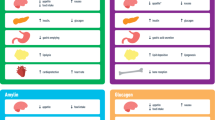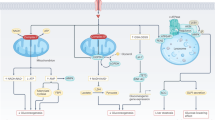Abstract
Although previous reports have shown that sodium-glucose cotransporter-2 (SGLT2) inhibitors have a blood pressure (BP) lowering effect, relevant long-term data is limited. This study aimed to evaluate the effect of the SGLT2 inhibitor ipragliflozin on BP, and associations between BP reduction and changes in cardiometabolic variables in diabetic patients. This was a sub-analysis of the PROTECT trial, a multicenter, randomized, open-label study to assess if ipragliflozin delays carotid atherosclerosis in patients with type 2 diabetes. Participants were randomized to ipragliflozin and control groups. The primary endpoint of the present sub-analysis was the trajectory of systolic BP over 24 months. Correlations between systolic BP changes and cardiometabolic variables were also evaluated. A total of 232 eligible participants with well-balanced baseline characteristics were included in each study group. Throughout the 24-month study period, mean systolic BP was lower in the ipragliflozin group. At 24 months, a between-group difference (ipragliflozin minus control) in mean systolic BP change from baseline was −3.6 mmHg (95% confidence interval, −6.2 to −1.0 mmHg), and the reduction in systolic BP in the ipragliflozin group was consistent across subgroups examined. Changes in systolic BP significantly correlated with those in body mass index in the ipragliflozin group, while no significant correlations with other cardiometabolic variables tested were observed. In conclusion, ipragliflozin treatment was associated with BP reduction throughout the 24-month follow-up period as compared to control treatment. BP reduction correlated with weight loss, which might be one of the mechanisms for the BP lowering effect of SGLT2 inhibitors.

This is a preview of subscription content, access via your institution
Access options
Subscribe to this journal
Receive 12 print issues and online access
$259.00 per year
only $21.58 per issue
Buy this article
- Purchase on Springer Link
- Instant access to full article PDF
Prices may be subject to local taxes which are calculated during checkout



Similar content being viewed by others
References
Braunwald E. Gliflozins in the management of cardiovascular disease. N Engl J Med. 2022;386:2024–34.
McGuire DK, Shih WJ, Cosentino F, Charbonnel B, Cherney DZI, Dagogo-Jack S, et al. Association of SGLT2 inhibitors with cardiovascular and kidney outcomes in patients with type 2 diabetes: a meta-analysis. JAMA Cardiol. 2021;6:148–58.
Nuffield Department of Population Health Renal Studies Group. SGLT2 inhibitor Meta-Analysis Cardio-Renal Trialists’ Consortium. Impact of diabetes on the effects of sodium glucose co-transporter-2 inhibitors on kidney outcomes: collaborative meta-analysis of large placebo-controlled trials. Lancet. 2022;400:1788–801.
Cowie MR, Fisher M. SGLT2 inhibitors: mechanisms of cardiovascular benefit beyond glycaemic control. Nat Rev Cardiol. 2020;17:761–72.
Lopaschuk GD, Verma S. Mechanisms of cardiovascular benefits of sodium glucose co-transporter 2 (SGLT2) inhibitors: a state-of-the-art review. JACC Basic Transl Sci. 2020;5:632–44.
Mazidi M, Rezaie P, Gao HK, Kengne AP. Effect of sodium-glucose cotransport-2 inhibitors on blood pressure in people with type 2 diabetes mellitus: a systematic review and meta-analysis of 43 randomized control trials with 22,528 patients. J Am Heart Assoc. 2017;6:e004007.
Benham JL, Booth JE, Sigal RJ, Daskalopoulou SS, Leung AA, Rabi DM. Systematic review and meta-analysis: SGLT2 inhibitors, blood pressure and cardiovascular outcomes. Int J Cardiol Heart Vasc. 2021;33:100725.
Nazarzadeh M, Bidel Z, Canoy D, Copland E, Bennett DA, Dehghan A, et al. Blood pressure-lowering treatment for prevention of major cardiovascular diseases in people with and without type 2 diabetes: an individual participant-level data meta-analysis. Lancet Diabetes Endocrinol. 2022;10:645–54.
Wang H, Yao G, Chen X, Ouyang J, Yang J. Ipragliflozin as an add-on therapy in type 2 diabetes mellitus patients: an evidence-based pharmacoeconomics evaluation. Diabetes Res Clin Pract. 2019;157:107867.
Alkabbani W, Gamble JM. Profile of ipragliflozin, an oral SGLT-2 inhibitor for the treatment of type 2 diabetes: the evidence to date. Drug Des Devel Ther. 2021;15:3057–69.
Tanaka A, Sata M, Okada Y, Teragawa H, Eguchi K, Shimabukuro M, et al. Effect of ipragliflozin on carotid intima-media thickness in patients with type 2 diabetes: a multicenter, randomized, controlled trial. Eur Heart J Cardiovasc Pharmacother. 2023;9:165–72.
Tanaka A, Murohara T, Taguchi I, Eguchi K, Suzuki M, Kitakaze M, et al. Rationale and design of a multicenter randomized controlled study to evaluate the preventive effect of ipragliflozin on carotid atherosclerosis: the PROTECT study. Cardiovasc Diabetol. 2016;15:133.
Kishimoto S, Higashi Y, Imai T, Eguchi K, Fukumoto K, Tomiyama H, et al. Lack of impact of ipragliflozin on endothelial function in patients with type 2 diabetes: sub-analysis of the PROTECT study. Cardiovasc Diabetol. 2023;22:119.
Tanaka A, Imai T, Toyoda S, Sugimoto K, Yoshida R, Furuta M, et al. Long-term observation of estimated fluid volume reduction after the initiation of ipragliflozin in patients with type 2 diabetes mellitus: a sub-analysis from a randomized controlled trial (PROTECT). Diabetol Metab Syndr. 2023;15:152.
Umemura S, Arima H, Arima S, Asayama K, Dohi Y, Hirooka Y, et al. The Japanese Society of Hypertension Guidelines for the Management of Hypertension (JSH 2019). Hypertens Res. 2019;42:1235–481.
Araki E, Goto A, Kondo T, Noda M, Noto H, Origasa H, et al. Japanese clinical practice guideline for diabetes 2019. Diabetol Int. 2020;11:165–223.
Zinman B, Wanner C, Lachin JM, Fitchett D, Bluhmki E, Hantel S, et al. Empagliflozin, cardiovascular outcomes, and mortality in type 2 diabetes. N Engl J Med. 2015;373:2117–28.
Neal B, Perkovic V, Mahaffey KW, de Zeeuw D, Fulcher G, Erondu N, et al. Canagliflozin and cardiovascular and renal events in type 2 diabetes. N Engl J Med. 2017;377:644–57.
Wiviott SD, Raz I, Bonaca MP, Mosenzon O, Kato ET, Cahn A, et al. Dapagliflozin and cardiovascular outcomes in type 2 diabetes. N Engl J Med. 2019;380:347–57.
GBD 2021 Diabetes Collaborators. Global, regional, and national burden of diabetes from 1990 to 2021, with projections of prevalence to 2050: a systematic analysis for the Global Burden of Disease Study 2021. Lancet. 2023;402:203–34.
Sha S, Polidori D, Farrell K, Ghosh A, Natarajan J, Vaccaro N, et al. Pharmacodynamic differences between canagliflozin and dapagliflozin: results of a randomized, double-blind, crossover study. Diabetes Obes Metab. 2015;17:188–97.
Jiang Y, Yang P, Fu L, Sun L, Shen W, Wu Q. Comparative cardiovascular outcomes of SGLT2 inhibitors in type 2 diabetes mellitus: a network meta-analysis of randomized controlled trials. Front Endocrinol. 2022;13:802992.
Maliha G, Townsend RR. SGLT2 inhibitors: their potential reduction in blood pressure. J Am Soc Hypertens. 2015;9:48–53.
Sawami K, Tanaka A, Node K. Recent understandings about hypertension management in type 2 diabetes: what are the roles of SGLT2 inhibitor, GLP-1 receptor agonist, and finerenone? Hypertens Res. 2023;46:1892–9.
Cefalu WT, Stenlöf K, Leiter LA, Wilding JP, Blonde L, Polidori D. Effects of canagliflozin on body weight and relationship to HbA1c and blood pressure changes in patients with type 2 diabetes. Diabetologia. 2015;58:1183–7.
Wilcox CS. Antihypertensive and renal mechanisms of SGLT2 (sodium-glucose linked transporter 2) inhibitors. Hypertension. 2020;75:894–901.
Herat LY, Magno AL, Rudnicka C, Hricova J, Carnagarin R, Ward NC, et al. SGLT2 inhibitor-induced sympathoinhibition: a novel mechanism for cardiorenal protection. JACC Basic Transl Sci. 2020;5:169–79.
Heerspink HJ, Perkins BA, Fitchett DH, Husain M, Cherney DZ. Sodium glucose cotransporter 2 inhibitors in the treatment of diabetes mellitus: cardiovascular and kidney effects, potential mechanisms, and clinical applications. Circulation. 2016;134:752–72.
Hu M, Cai X, Yang W, Zhang S, Nie L, Ji L. Effect of hemoglobin a1c reduction or weight reduction on blood pressure in glucagon-like peptide-1 receptor agonist and sodium-glucose cotransporter-2 inhibitor treatment in type 2 diabetes mellitus: a meta-analysis. J Am Heart Assoc. 2020;9:e015323.
Shi Q, Nong K, Vandvik PO, Guyatt GH, Schnell O, Rydén L, et al. Benefits and harms of drug treatment for type 2 diabetes: systematic review and network meta-analysis of randomised controlled trials. BMJ. 2023;381:e074068.
Neter JE, Stam BE, Kok FJ, Grobbee DE, Geleijnse JM. Influence of weight reduction on blood pressure: a meta-analysis of randomized controlled trials. Hypertension. 2003;42:878–84.
the PROTECT investigators:
Principal Investigators Koichi Node9, Toyoaki Murohara10
Research Advisor Masafumi Kitakaze11
Steering Committee Yoshihiko Nishio12, Teruo Inoue13, Mitsuru Ohishi12, Kazuomi Kario14, Masataka Sata15, Michio Shimabukuro16, Wataru Shimizu17, Hideaki Jinnouchi18, Isao Taguchi19, Hirofumi Tomiyama20, Koji Maemura21
Executive Committee Makoto Suzuki22, Shinichi Ando23, Kazuo Eguchi24, Haruo Kamiya25, Tomohiro Sakamoto26, Hiroki Teragawa27, Mamoru Nanasato28
Data and Safety Monitoring Board Munehide Matsuhisa15, Junya Ako29, Yoshimasa Aso13, Masaharu Ishihara30, Kazuo Kitagawa31, Akira Yamashina32
Tsukuba Echo Core Laboratory. LLC Tomoko Ishizu33
Monitoring Yumi Ikehara34, Shinichiro Ueda34
Audit Team35
Data Center and Data Management Ayako Takamori36
Statistical Analysis Hisako Yoshida37, Takumi Imai38
Study Secretariat Atsushi Tanaka9
Site Investigators (duplicates excluded) Machiko Asaka9, Tetsuya Kaneko9, Masashi Sakuma13, Shigeru Toyoda13, Takahisa Nasuno13, Michiya Kageyama13, Jojima Teruo13, Iijima Toshie13, Haruka Kishi13, Hirotsugu Yamada15, Kenya Kusunose15, Daiju Fukuda15, Shusuke Yagi15, Koji Yamaguchi15, Takayuki Ise15, Yutaka Kawabata15, Akio Kuroda15, Yuichi Akasaki12, Mihoko Kurano12, Satoshi Hoshide14, Takahiro Komori14, Tomoyuki Kabutoya14, Yukiyo Ogata14, Yuji Koide21, Hiroaki Kawano21, Satoshi Ikeda21, Satoki Fukae21, Seiji Koga21, Yukihito Higashi39, Shinji Kishimoto39, Masato Kajikawa39, Tatsuya Maruhashi39, Yoshiaki Kubota17, Yoshisato Shibata40, Nehiro Kuriyama40, Ikuko Nakamura41, Kanemitsu Hironori42, Bonpei Takase43, Yuichi Orita27, Chikage Oshita27, Yuko Uchimura27, Ruka Yoshida44, Yukihiko Yoshida44, Hirohiko Suzuki44, Yasuhiro Ogura44, Mayuho Maeda44, Masaki Takenaka44, Takumi Hayashi44, Mirai Hirose44, Itaru Hisauchi19, Toshiaki Kadokami23, Ryo Nakamura23, Junji Kanda45, Kazuo Matsunaga46, Masaaki Hoshiga47, Koichi Sohmiya47, Yumiko Kanzaki47, Arihiro Koyosue48, Hiroki Uehara49, Naoto Miyagi49, Toshiya Chinen49, Kentaro Nakamura49, Chikashi Nago49, Suguru Chiba49, Sho Hatano49, Yoshikatsu Gima49, Masami Abe49, Masayoshi Ajioka50, Hiroshi Asano50, Yoshihiro Nakashima50, Hiroyuki Osanai50, Takahiro Kanbara50, Yusuke Sakamoto50, Mitsutoshi Oguri51, Shiou Ohguchi51, Kunihiko Takahara51, Kazuhiro Izumi51, Kenichiro Yasuda51, Akihiro Kudo16, Noritaka Machii16, Ryota Morimoto10, Yasuko Bando10, Takahiro Okumura10, Toru Kondo10, Shin-ichiro Miura52, Yuhei Shiga52, Joji Mirii52, Makoto Sugihara52, Tadaaki Arimura52, Junko Nakano53, Tomohiro Sakamoto26, Kazuhisa Kodama26, Nobuyuki Ohte54, Tomonori Sugiura54, Kazuaki Wakami54, Yasuhiko Takemoto55, Minoru Yoshiyama55, Taichi Shuto55, Kazuo Fukumoto55, Yosuke Okada56, Kenichi Tanaka56, Satomi Sonoda56, Akemi Tokutsu56, Takashi Otsuka56, Fumi Uemura56, Kenji Koikawa56, Megumi Miyazaki56, Maiko Umikawa56, Manabu Narisawa56, Machi Furuta57, Hiroshi Minami58, Masaru Doi59, Kazuhiro Sugimoto60, Susumu Suzuki60, Akira Kurozumi61, Kosuke Nishio61
Funding
This study was funded by Astellas Pharma Inc. Japan, and KN received the funding. The funder of the trial had no role in the study design, data collection, data analysis, data interpretation, or writing of the work.
Author information
Authors and Affiliations
Consortia
Corresponding authors
Ethics declarations
Conflict of interest
YS received honoraria from Daiichi Sankyo. AT received honoraria from Boehringer Ingelheim Japan and research funding from GlaxoSmithKline, Takeda, Bristol-Myers Squibb, and Novo Nordisk. TI received lecture fees from JCR Pharmaceuticals and Kyowa Kirin and outsourcing fees from the Organization for Clinical Medicine Promotion. MM received honoraria from Sanofi, Eli Lilly Japan, Novo Nordisk Pharma, Abbott Japan, Sumitomo Pharma, Kyowa Kirin, Nippon Boehringer Ingelheim, and Orizuru Therapeutics, research funding from Novo Nordisk Pharma, and subsidies or donations from Sysmex and Nissui. KK reports lecture fees from Otsuka Pharmaceuticals, Daiichi Sankyo, Novartis Pharma, and Viatris, research grant from Otsuka Pharmaceuticals, Sanwa Kagaku Kenkyusho, Daiichi Sankyo, Taisho Pharmaceutical, Sumitomo Pharma, Takeda Pharmaceuticals, Mitsubishi Tanabe Pharma, Boehringer Ingerheim Japan, and Mochida Pharmaceuticals, and consulting fees from Sanwa Kagaku Kenkyusho, Mochida Pharmaceuticals and is an advisory board member of Daiichi Sankyo and Novartis Pharma. YK received honoraria from Astellas, AstraZeneca, Boehringer Ingelheim, and Daiichi-Sankyo and research grant from Boehringer Ingelheim and Daiichi-Sankyo. KN has received honoraria from AstraZeneca, Bayer Yakuhin, Boehringer Ingelheim Japan, Daiichi Sankyo, Eli Lilly Japan, Kowa, Mitsubishi Tanabe Pharma, MSD, Novartis Pharma, Novo Nordisk Pharma, Ono Pharmaceutical, Otsuka, and Takeda Pharmaceutical, research grant from Asahi Kasei, Astellas, Boehringer Ingelheim Japan, Fuji Yakuhin, Mitsubishi Tanabe Pharma, Mochida Pharmaceutical, Novartis Pharma, and Teijin Pharma, and scholarship from Bayer Yakuhin, Medtronic, Teijin Pharma. All other authors declare no competing interests.
Additional information
Publisher’s note Springer Nature remains neutral with regard to jurisdictional claims in published maps and institutional affiliations.
Rights and permissions
Springer Nature or its licensor (e.g. a society or other partner) holds exclusive rights to this article under a publishing agreement with the author(s) or other rightsholder(s); author self-archiving of the accepted manuscript version of this article is solely governed by the terms of such publishing agreement and applicable law.
About this article
Cite this article
Saito, Y., Tanaka, A., Imai, T. et al. Long-term effects of ipragliflozin on blood pressure in patients with type 2 diabetes: insights from the randomized PROTECT trial. Hypertens Res 47, 168–176 (2024). https://doi.org/10.1038/s41440-023-01494-6
Received:
Revised:
Accepted:
Published:
Issue Date:
DOI: https://doi.org/10.1038/s41440-023-01494-6



